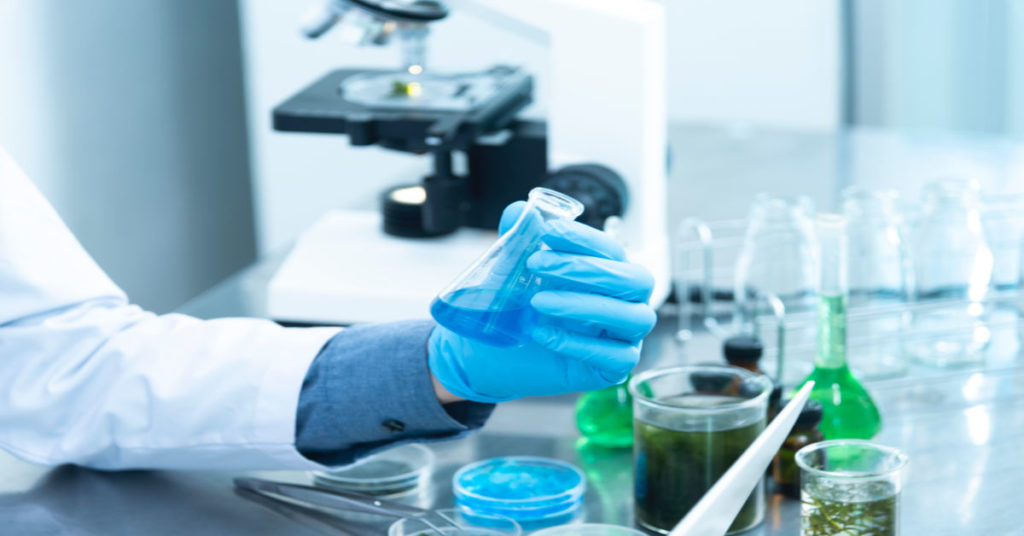In the competitive world of pharmaceutical research, acing the interview is pivotal to success.
This article presents five essential research pharmacist interview questions that will help you stand out and impress your potential employers.
Whether you’re a seasoned research pharmacist or new to the field, these questions and expert responses will guide you in showcasing your expertise and securing your place in the dynamic world of pharmaceutical research.
Common Research Pharmacist Interview Questions and Answers
1. Can you describe your experience in conducting pharmaceutical research, including any specific studies or projects you’ve been involved in?
When responding, focus on concisely overviewing your pharmaceutical research experience, highlighting relevant studies or projects.
Emphasize your specific roles, the methodologies and techniques used, and the outcomes or impact of your research work.
Tailor your response to align with the job requirements and the organization’s research focus.
Example answer:
I’ve contributed to pharmaceutical research by actively participating in projects like [mention specific project or study].
In these roles, I conducted [briefly explain your research methods], resulting in [mention key outcomes or findings].
My experience has equipped me with the skills to tackle complex research challenges effectively.
See also: Why Do You Want To Be A Clinical Research Associate
2. What methodologies and techniques have you used in your research to assess drug efficacy, safety, or pharmacokinetics?
When responding, emphasize your proficiency in various research methodologies and techniques.
Discuss specific tools or approaches, such as in vitro assays, animal models, clinical trials, or data analysis methods.
Highlight how these methods were applied to evaluate drug efficacy, safety, or pharmacokinetics in past research, demonstrating your expertise in pharmaceutical research techniques.
Example answer:
In my research, I’ve employed a range of methodologies and techniques, including in vitro assays, animal models, and clinical trials.
These methods have enabled me to comprehensively evaluate drug efficacy, safety, and pharmacokinetics, contributing to a thorough understanding of drug candidates and their potential applications
See also: Clinical Data Analyst Interview Questions
3. How do you stay current with the latest developments and research trends in the pharmaceutical field, and how do you apply this knowledge to your work?
When addressing this question, stress your commitment to ongoing learning and staying updated with pharmaceutical advancements.
Mention regular literature reviews, attending conferences, and active membership in professional organizations.
Explain how you integrate new knowledge into your research projects, ensuring they align with industry trends and enhance the quality and impact of your work.
Example answer:
I stay current by avidly reading scientific journals, attending industry conferences, and networking with experts.
This knowledge is immediately integrated into my research, influencing study design, data interpretation, and ensuring our projects remain at the forefront of pharmaceutical advancements.
See also: Clinical Supervisor Interview Questions
4. Can you provide an example of a challenging research project you’ve worked on and how you overcame obstacles to achieve meaningful results?
When responding, select an example demonstrating your problem-solving skills and resilience in research.
Highlight specific challenges encountered, the strategies to address them, and the ultimate positive outcomes.
Emphasize the collaborative aspects of overcoming obstacles and the impact of your work on advancing pharmaceutical research.
Example answer:
We encountered significant data collection difficulties in a complex study on [briefly describe the research project].
To overcome this, I restructured the data collection process, collaborated closely with the team, and implemented innovative data analysis techniques.
The result was not only meaningful findings but also improved project efficiency.
See also: Why Do You Want to Be a Clinical Research Coordinator?
5. In a collaborative research team, how do you contribute and communicate effectively to ensure the success of a research project?
When responding, focus on your ability to collaborate and communicate effectively within a research team.
Highlight active participation, sharing ideas, and ensuring all team members are informed.
Mention your adaptability, listening skills, and commitment to achieving common research goals while fostering a productive and harmonious work environment.
Example answer:
In a collaborative research team, I prioritize open communication and active participation.
I share my expertise and insights, while also listening to colleagues. Regular progress updates and adapting to team dynamics are crucial.
By fostering an inclusive and cooperative atmosphere, we collectively ensure the success of our research projects.
See also: What Can You Bring to Our Team Nursing Interview
Research Pharmacist Interview Questions and Answers PDF
Download our comprehensive PDF guide featuring expertly crafted research pharmacist interview questions and model answers.
Gain the confidence and knowledge you need to excel in your upcoming job interviews.
Don’t miss out – get your PDF now and embark on your path to career success!
Conclusion: Interview Questions for Research Pharmacist
In the dynamic realm of pharmaceutical research, acing the interview is the gateway to a rewarding and impactful career.
This article has explored the crucial domain of research pharmacist interview questions, providing valuable insights and expert responses.
Whether you are an experienced researcher looking to advance your career or a newcomer to the field, these questions equip you to navigate interviews with confidence, showcasing your research prowess and securing a pivotal role in pharmaceutical innovation and advancement.
Good luck with your upcoming interview!
Related articles of ours:
